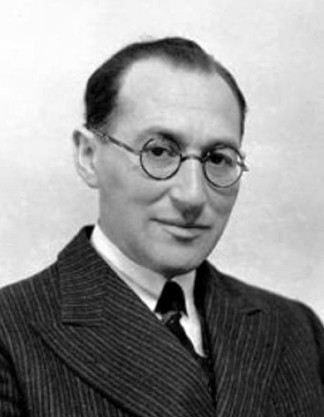Lewin, Kurt

Kurt Lewin is considered to be by many, the most charismatic psychologist of his generation. He was born in Germany in 1890. His formal training in psychology began in 1910 in Berlin and led to a Ph.D. in the experimental study of associative learning.
During World War I Lewin served as a private and eventually became a lieutenant in the German army. He was wounded in action and received an Iron Cross. After the war he returned to the Psychological Institute in Berlin where he became Privatedozent in 1921. In 1927, at the age of 37, he advanced to Ausserordentlicher Professor.
Lewin came to the United States in 1932 as a visiting professor to Stanford University. His influence in America was immediate. Lewin published many books before his arrival to the United States and after. With Fritz Heider, a fellow refugee friend from Berlin, and his American wife Grace, he wrote Lewin's Principles of Topical Psychology. Lewin left Stanford for Cornell and eventually settled down at the University of Iowa from 1935 to 1944. After Lewin moved from Iowa he established and directed the Research Center for Group Dynamics at the Massachusetts Institute of Technology.
Lewin is most renowned for his development of the field theory. The field theory is the "proposition that human behavior is the function of both the person and the environment: expressed in symbolic terms, B = f (P, E)". This means that one's behavior is related both to one's personal characteristics and to the social situation in which one finds oneself.
The field theory may seem obvious to us now, but most early psychologists did not believe in behaviorism. Many psychologists at the time believed in the psychoanalytic theory that held human motives to be blind pushes from within. Lewin thought of motives as goal-directed forces. He believed "that our behavior is purposeful; we live in a psychological reality or life space that includes not only those parts of our physical and social environment that are important to us but also imagined states that do not currently exist".
Lewin's field theory led to the development of actual field research on human behavior. With boldness, Lewin manipulated complex situational variables in natural settings. His approach has guided experiments in the field of social cognition, social motivation, and group processes. Most importantly Lewin helped develop action research. Action research uses empirical social research, social action, and controlled evaluation.
Clearly, Kurt Lewin's field theory and action field research has one of the most outstanding impacts on modern social psychology. His field theory explained that our actions are a result of both environmental and psychological traits. We are not just beings who act from internal impulses. Instead we are greatly influenced by our surroundings.
Lastly Lewin's belief that social-psychological phenomena can be studied experimentally was a huge impetus for scientific research. He was the first to test human behavior in a controlled setting. His research also showed events must be studied in relation to one another, and that both the individual and the group are important. His research helped to better explain leadership atmospheres and group dynamics.
Kurt Lewin's influence on scientific research is his legacy. He was a ground-breaking psychologist who greatly impacted his field. Kurt Lewin will continue to influence both theory and research all the way to and beyond the twenty-first century.
